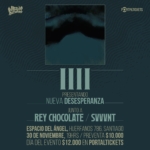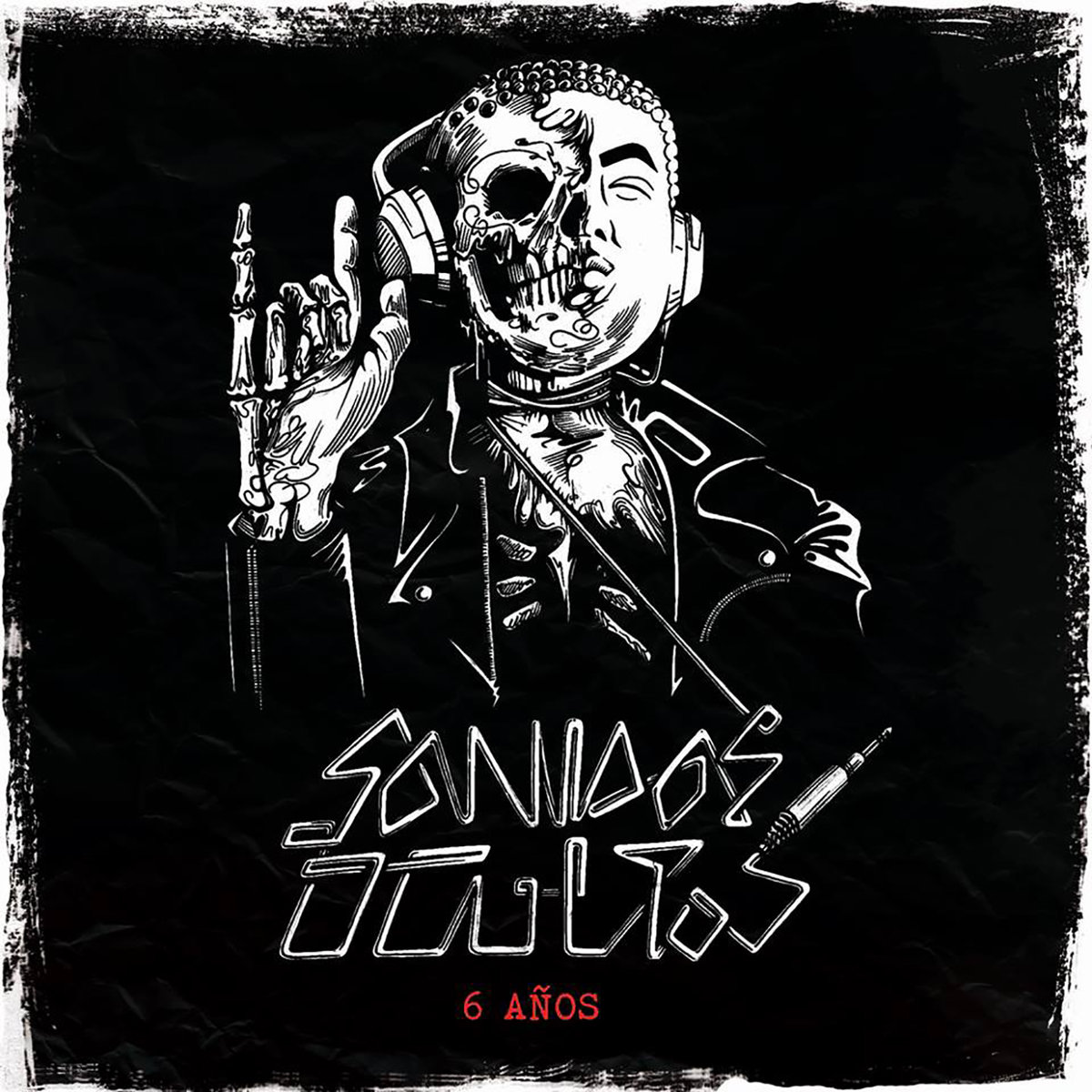

Ale Méndez – Dakota (2020)
jueves 04 de junio, 2020
Escrito por: Álvaro Molina


- Ale Méndez
- Dakota
- ¡Haz clic para puntuar esta entrada!(Votos: 0 Promedio: 0)
- Escucha nuestra música
Siempre le hace bien al alma escuchar un poco de blues. Más aún en tiempos donde necesitamos, más que nunca, reencontrarnos con ella. Y, sobre todo, cuando es el tipo de blues que levanta polvareda, con pantalones sucios de tierra y barro para sentarse a oír ese exquisito sonido de la slide guitar mientras esperamos que llegue el tren en una vieja estación en la mitad de la nada.
El músico Ale Méndez se encarga de entregarnos este «blues a la medida» en su nuevo EP ‘Dakota’, una conexión profunda con las raíces del género para dar con ese sonido crujiente y áspero en la voz y guitarra, con letras llenas de sarcasmo, ironía y un poco de descaro.
Se abre el telón con ‘El Tren’ y los primeros segundos ya me daban esa sensación de estar en un lugar con el sabor a tierra en la boca, algunos perros viejos dando vueltas alrededor de una vieja casona perdida en el campo. La voz de Méndez es ruda y seca, como si estuviera cantando desde las sombras con algunas pausas para tomarse unos cortos de whiskey. Pero no es un mero romanticismo al espíritu medio arrogante del renegado, sino que el mensaje es para creerse el cuento: “Nos volvemos a encontrar en el lugar donde llegan los que ya no creen en la verdad, la que transmiten por cadena nacional”.
‘Los Diarios’ es mucho más directa; descabeza las incompetencias de los medios de comunicación – una historia ya conocida – en clave folk blues, con la banda de apoyo de Méndez luciéndose en el tema. Claro, ya conocemos la historia o como dice Méndez con su respectiva cuota de picardía: “Si te cuento los detalles no queda nada por contar, pero si aún quieres saberlos en mi cama te los puedo dar, dar un blues a la medida para que no me dejes de llamar”.
Se apagan un poco las luces y sube el humo al momento que aparece ‘Hablar sin voz’, la canción más sentida del EP. No solo por su ritmo pausado, el de esos blues sensuales y algo nostálgicos – o que se ponen en contacto con esa tristeza dolida tan original en el género, con la garganta un poco apretada y ganas de igual llorárselo todo. “Sube el volumen a tu silencio, duele hablar sin voz”, dice Méndez. Y puta que duele.
Pero vamos arriba. ‘Dame’ es lo más cercano a un blues rock movido, pero también la con más personalidad y donde creo que están las letras más creativas y entretenidas: “No me des dolor, no me cuentes tu vida, no me hables de lo que escribes en tu agenda Pascualina” (el que sabe, sabe). Y ya en el final, Méndez rinde tributo a Creedence Clearwater Revival con un cover de ‘Lodi’ que le queda bien, a su propia medida y que redondea todo el espíritu sonoro del EP, bien rugoso y que no se guarda nada de lo que, en el fondo, realmente busca decir a través de su música. Bien por Méndez. El blues le hace bien al alma.
(Reseña en inglés)
It is always good for the soul to listen to a little blues. Even more so in times where we need, more than ever, to meet with it again. And, above all, when it’s the kind of blues that raises dust, with dirty dirt and mud pants to receive that exquisite sound of the slide guitar while we wait for the train to arrive at an old station in the middle of nowhere.
Musician Ale Méndez is in charge of delivering this kind of «custom blues» on his new EP ‘Dakota’, a deep connection with the roots of the genre to find that crisp, scratchy and harsh sound in his vocals and guitar, with lyrics full of sarcasm, irony and some cheek.
The curtain opens with ‘El Tren’ and the first few seconds already gave me that feeling of being in a place with the taste of earth in my mouth, some old dogs circling around an ancient house lost in the field. Méndez’s voice is rough and dry, as if he were singing from the shadows with a few pauses to have some whiskey. But it is not a mere romanticism to the arrogant half spirit of the renegade; the message is to believe the story: “Nos volvemos a encontrar en el lugar donde llegan los que ya no creen en la verdad, la que transmiten por cadena nacional” (“We meet again at the place where those who no longer believe in the truth arrive, the one they transmit on the national network»).
‘Los Diarios’ is much more direct; pointing at the incompetence of the media – a well-known story – in a folk blues key. Of course, we already know the story or as Méndez says with his respective share of mischief: “Si te cuento los detalles no queda nada por contar, pero si aún quieres saberlos en mi cama te los puedo dar, dar un blues a la medida para que no me dejes de llamar” (“If I tell you the details there is nothing left to tell, but if you still want to know them in my bed I can give them to you, give a custom blues so that don’t stop calling me”).
The lights go down low and the smoke rises the moment ‘Hablar sin voz’ appears, the most heartfelt song on the EP. Not only because of its slow rhythm, like the ones of those sensual and somewhat nostalgic blues – or that get in touch at that sadness so original in the genre, with a tight throat and wanting to cry everything. “Sube el volumen a tu silencio, duele hablar sin voz” (“Turn up the volume to your silence, it hurts to speak without a voice»), says Méndez. And shit, that really hurts.
But anyway, let’s cheer up. «Dame» is the closest to an animated blues rock, but also the one with the most personality and where I think the most creative and entertaining lyrics are: “No me des dolor, no me cuentes tu vida, no me hables de lo que escribes en tu agenda Pascualina” («Don’t give me pain, don’t tell me about your life, don’t tell me about what you write in your Pascualina agenda”) (the one who knows, knows). And at the end, Méndez pays tribute to Creedence Clearwater Revival with a cover of ‘Lodi’ that fits him well, to his own measure and that rounds out all the sound spirit of the EP, very rough and that does not save anything that , deep down, he really seeks to say through his music. Good for Mendez, the blues really do good to the soul.
Este artículo ha sido visitado 629 veces, de las cuales 1 han sido hoy



























